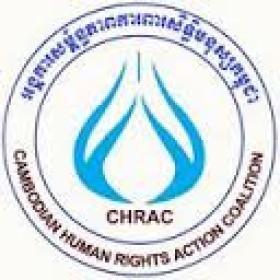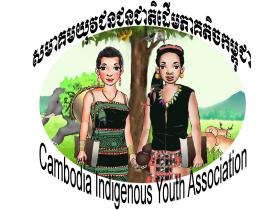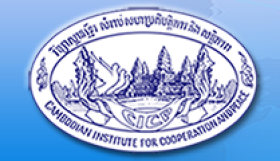Our international network of partners encompasses academic institutions, data aggregators, government bodies, publishers, farmers associations, NGOs and other civil society actors. Explore the range of organizations using the Land Portal below and join the network today.
Cambodian Human Rights Action Committee
The Cambodian Human Rights Action Committee (CHRAC) is a coalition of 22 NGO members. It was created in Phnom Penh in 1994 by a group of local NGOs and associations working for the promotion and the respect of human rights, democracy and rule of law in Cambodia.
Cambodian Human Rights and Development Association
The Cambodian Human Rights and Development Association (ADHOC) was founded by a group of former political prisoners in December 1991 after the signing of the Paris Peace Agreements on October 23, 1991. ADHOC is an independent, non-partisan, non-profit and non-governmental organization.
Cambodian Indigenous Youth Association
The indigenous people in Cambodia are living in the remote areas and highlands of Cambodia, especially in the Northeast of Cambodia, including Ratanakiri, Mondulkiri, Kratie, and Preh Vihear, and in the southwest along the cardamom mountains. These provinces are located far from Phnom Penh, the capital of Cambodia.
Cambodian Institute for Cooperation and Peace
The Cambodian Institute for Cooperation and Peace (CICP) is an independent, neutral, and non-partisan research institute based in Phnom Penh, Cambodia.
Cambodian Investment Board of the Council for the Development of Cambodia
Recognizing that the real economic growth necessary to achieve the country’s developmental goals lies in the development of a healthy private sector, the government undertook a program of reform to promote private sector investment. As part of this reform program, the Law on Foreign Investment in the Kingdom of Cambodia of 1994 established the Council for the Development of Cambodia (CDC).
Cambodian League for the Promotion and Defense of Human Rights
LICADHO is a national Cambodian human rights organization. Since its establishment in 1992, LICADHO has been at the forefront of efforts to protect civil, political, economic and social rights in Cambodia and to promote respect for them by the Cambodian government and institutions.
Cambodian Ministry of Commerce
The Ministry of Commerce of the Kingdom of Cambodia mission is that of promoting job creation, economic growth, sustainable development and to improve the standard of living for all Cambodians.
The Ministry works in partnership with other government ministries; businesses, universities, organizations and the country’s labor force.
Cambodian Ministry of Land Management, Urban Planning and Construction
The Ministry of Land Management, Urban Planning and Construction (MLMUPC) is a government ministry of Cambodia. The Ministry is responsible for governing land use, urban planning, construction projects, and for the resolution of land use conflicts.
The Ministry is currently organized into 6 administrative areas:
Cambodian National Institute of Statistics
The National Institute of Statistics (NIS), which is part of the Ministry of Planning, is the focal point on statistical matters in Cambodia. The NIS compiles and consolidates statistics provided by decentralized offices and also collects primary data through household and establishment surveys and population, agricultural and economic censuses.
Cambodian NGO Committee on CEDAW
1. Vision
NGO-CEDAW envisions a Cambodian society in which both men and women fully realize and enjoy their human rights. We strive for: substantive equality for men and women in all fields; no gender-based discrimination; social justice; universal access to justice and education; and fair, sustainable economic development.
Cambodian Office of the Council of Ministers
The Cabinet of Cambodia, formally known as the Council of Ministers (Khmer: គណៈរដ្ឋមន្ត្រី), is the executive body of the Kingdom of Cambodia led by the Prime Minister, assisted by Deputy Prime Ministers, Senior Ministers, Ministers, and Secretaries of State. Members of the Cabinet are nominated by the Prime Minister and appointed by the Monarch.











